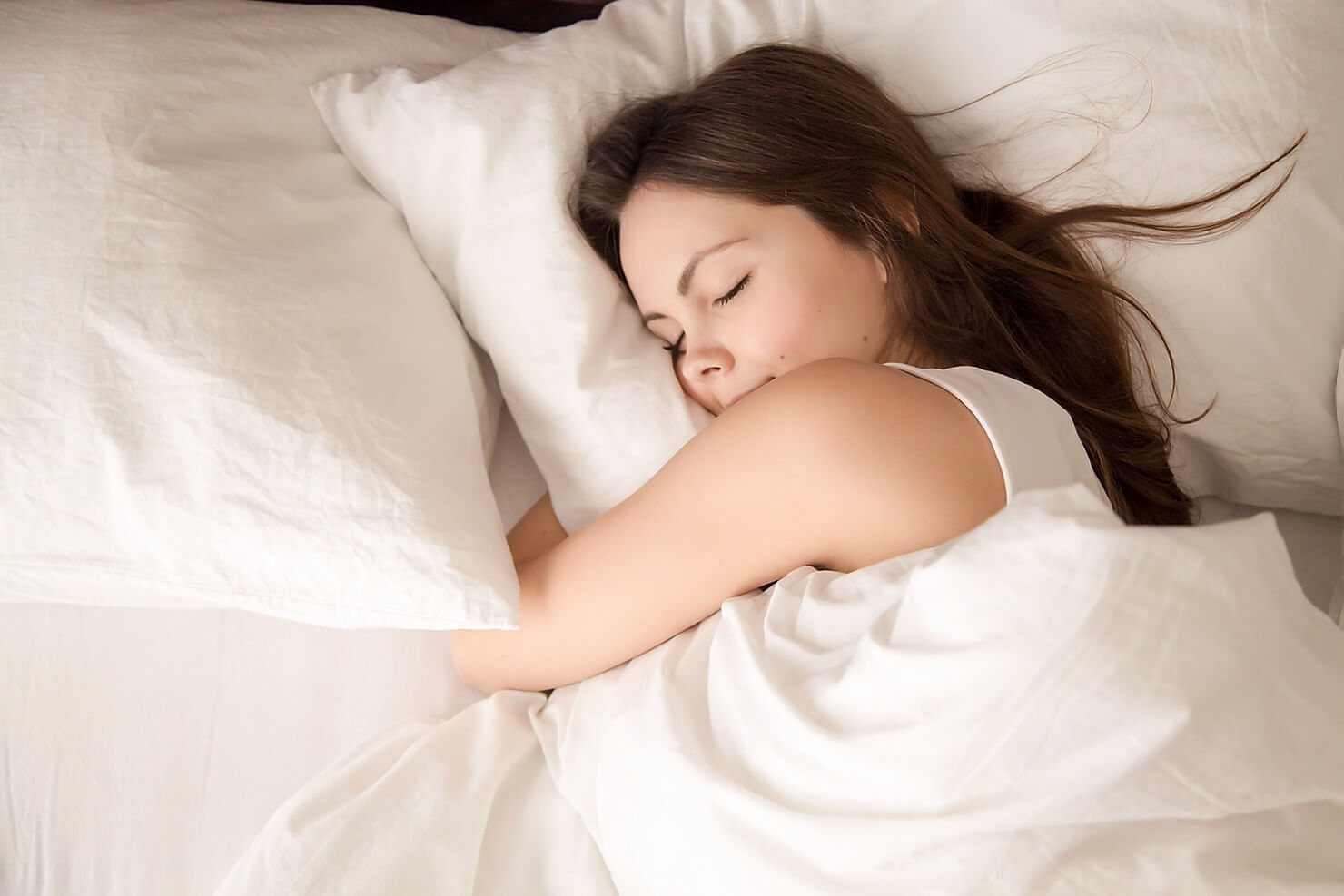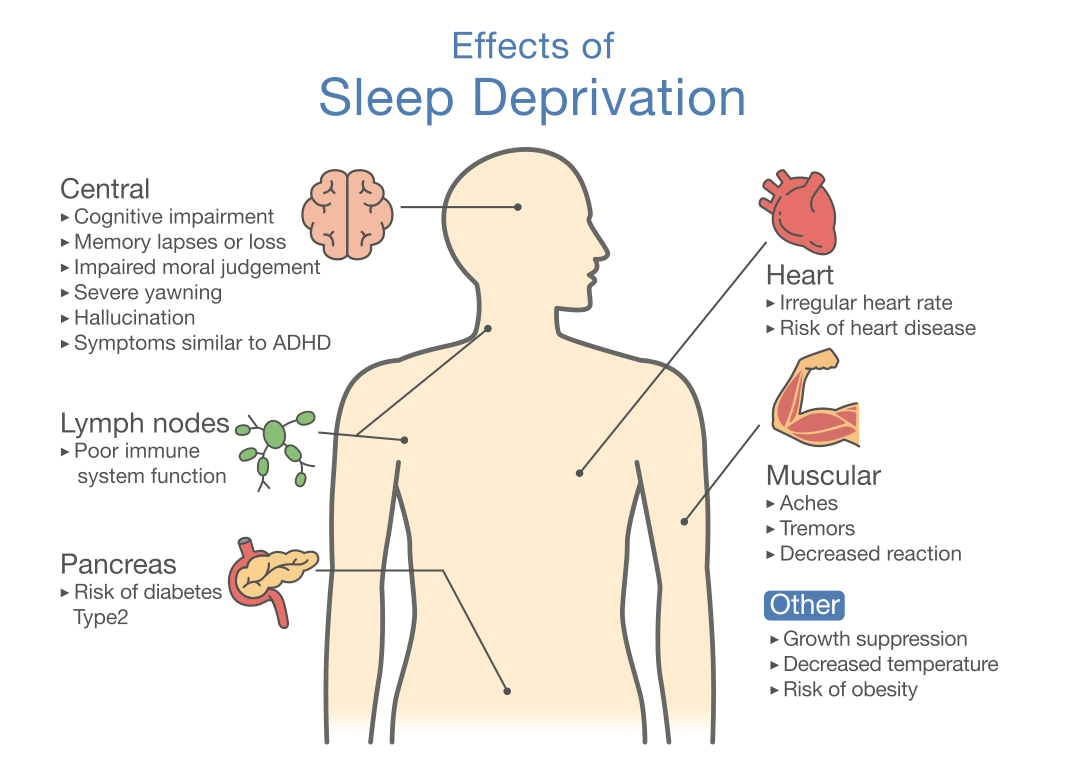Are you getting enough sleep at night? If not, you’re going to want to keep reading! If we live to be 90 years old, we will spend 32 years (or 36%) of our lives sleeping. It’s time to stop treating sleep as the enemy, or feeling guilty about sleeping. For this month’s spotlight on sleep, we learn from Wellness Program Strategist Romy Nelson, MEd, NDTR, who works with businesses on corporate wellness programs. As a nutrition professional and personal trainer, she says that sleep is a key part of health and wellness, and is often a missing piece in many wellness programs. With over 15 years of wellness industry experience, Romy knows a thing or two about why we need sleep, what happens when we don’t get enough sleep, and how we can improve our sleep duration and quality.

The benefits of sleep go far beyond just feeling rested and ready to take on our day:
-
Better performance and increased productivity
-
Slows aging
-
Enhances learning and memory
-
Improves mood/depression/anxiety
-
Reduces dependence on caffeine
So how much sleep do we need? The World Health Organizationrecommends 8 hours of sleep a night for adults. There are significant and detrimental effects to our bodies if we do not get the recommended amount of sleep every night:
-
6 hours of sleep or less your are 4x more likely to catch the flu when exposed
-
5 hours of sleep or less you have a 50% chance of being obese
-
40% reduction in learning when pulling an all-nighter
-
Increased stress, leading to serious diseases like cancer and type 2 diabetes

What are some practices and tools we can utilize to get better sleep each night and avoid these very serious effects on our bodies?
-
Expose yourself to natural sunlight
-
Avoid nicotine
-
Avoid alcohol several hours before bed
-
Avoid caffeine after noon or 1pm
-
Get up and go to sleep at the same time every day
-
Don’t stay in bed if you are awake for a long time
-
Have a nighttime ritual
-
Avoid large meals before bed
-
Try a combination of magnesium glycinate (400mg)and melatonin (10mg time released)20-30 minutes before bed
-
Be smart and patient with supplements and avoid medications
-
Exercise but not too close to bedtime
-
Sleep in a cool dark environment
-
Use earplugs and a sleep maskif necessary
-
No gadgets or electronics in bed 1-2 hours before bed
-
If you need to take a nap during the day, between 2-3pm is the best time and don’t sleep longer than 20-30 minutes
About Romy Nelson
Romy designs and implements employee wellness programs. She specializes in individual nutrition counseling, health education and facilitating exercise and weight loss challenges. She speaks professionally at conferences and seminars on a variety of health and wellness topics.
Romy battled her weight as a young teen and college student. In her mid-20s, she learned how to eat properly, lost the excess weight. She participated in eight amateur fitness/figure competitions between 1996 and 2005 and is a three-time Ms. Fitness Arizona. She became fascinated with the science of nutrition, went back to school, wrote a book and changed professions in 2004.
Romy holds a Master’s Degree in Education, as well as an AAS Degree in Dietetic Technology. She is a NDTR (Nutrition and Dietetics Technician, Registered) and certified fitness trainer (ASCM and NASM). She was Arizona Dietetic Technician, Registered of the Year in 2009. She is adjunct nutrition faculty at Glendale Community College and Central Arizona College.
Contact Romy
LinkedIn: https://www.linkedin.com/in/romy-nelson-med-ndtr-ab440924/
Website: http://essentialfitness.us/
Email: romynelsons@gmail.com
